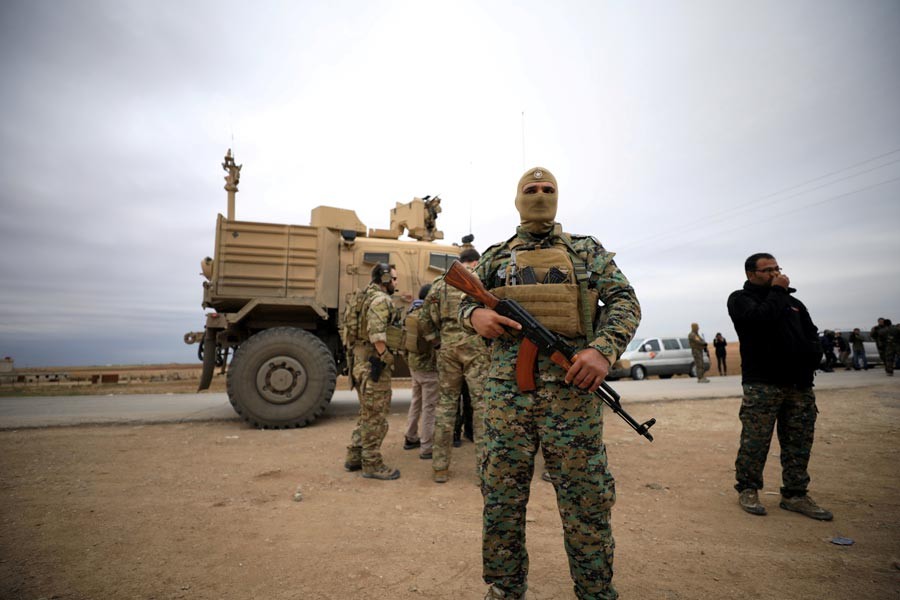The planned US troop withdrawal opens up a void in the north and east of Syria, and the conflicts and rivalries among all the powers in the Middle East are converging to fill it, reports AP.
The sudden American decision to pull out its 2,000 troops has forced a reassessment of old alliances and partnerships. The Syrian government, the Kurds, Russia, Iran, Israel and Turkey have all had a hand in the country's nearly eight-year war.
Now all of those conflicts play out in the territory being abandoned by the Americans, creating new tensions, potential chaos and bloodshed.
Here is a look at what's at stake.
The area up for grabs is around a third of Syria, forming a rough triangle. To the north is the border with Turkey, to the east the border with Iraq, and the third side is the Euphrates river.
This was the heart of the Islamic State group's foothold in Syria until the United States partnered with a Kurdish militia, creating a force of some 60,000 fighters -including some Syrian Arabs and Christian Assyrians - that wrested it away from the militants.
The territory is strategically important. For the Syrian government of President Bashar Assad and its allies Russia and Iran, regaining it means re-establishing sovereignty.
The territory was once the source of Syria's wheat and barley, its dams generated electricity and it holds some of Syria's richest oil resources. Without it, Assad will have a harder time with reconstruction and operating long term. For the same reasons, it's been a source of income for the Kurdish militia.
For the Kurds, their hold gave weight to their long-sought goal of autonomy. For the US, the troop presence ensured American influence.
Turkey sees Kurdish autonomy on its border as an existential threat and has vowed to prevent this, accusing the US of empowering the militia Ankara says is linked to Kurdish insurgents in Turkey.
Without the Americans, the door opens for Assad and his Russian backers to move in.
"The only obstacle preventing Assad from gaining control of the east was the US presence and the cover that it provided to the (Kurdish militia). With that gone ... there is simply no real challenge that would prevent the regime from re-establishing control over those areas," said Ayham Kamel, of the Eurasia group.


